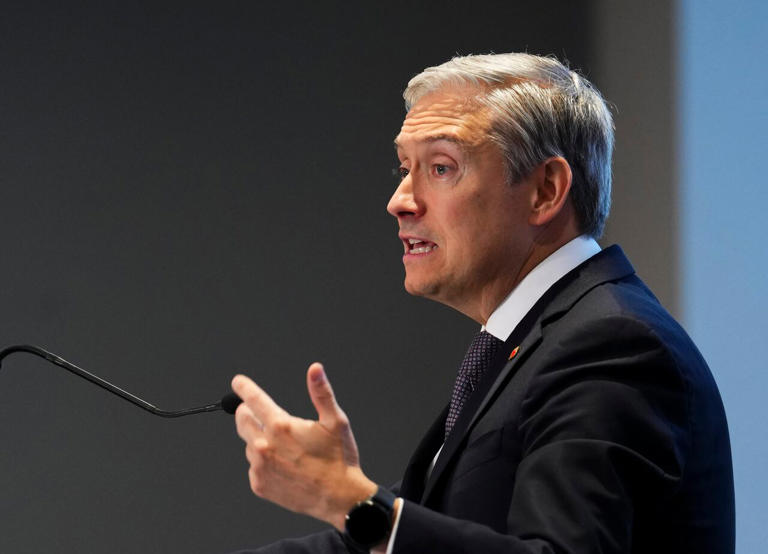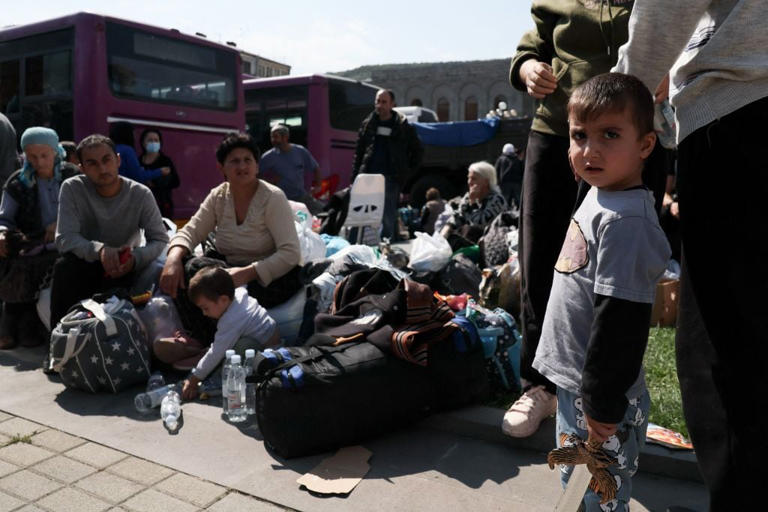Story by Raffy Boudjikanian • CBC
The Canadian Space Agency did not participate in the 2023 International Astronautical Congress, citing concerns over a "humanitarian crisis" in the annual event's host country this year, Azerbaijan.
The move comes after Azerbaijan launched what it called an "anti-terror" operation, shelling and taking military control of the long-disputed enclave of Nagorno-Karabakh, prompting more than 100,000 ethnic Armenians to flee their homeland and take refuge in neighbouring Armenia.
"The Canadian Space Agency will continue to promote the peaceful and sustainable exploration of space for the benefit of humanity," the federal government agency said in a brief media statement.
"I think it's the right decision," Industry Minister François-Philippe Champagne told CBC News. "The Canadian Space Agency is an independent agency of government, but as the minister responsible, I can understand the choice they made."
"That's what we need to do as Canada."

Innovation, Science and Industry Minister Francois-Philippe Champagne speaks at at an event in Ottawa on Thursday. Champagne called the CSA's move to avoid an event in Azerbaijan over humanitarian concerns the right decision. (Sean Kilpatrick/The Canadian Press)© Provided by cbc.ca
The congress annually gathers some 6,000 participants, according to the International Astronautical Federation, to "offer everyone the latest space information and developments in academia and industry, networking opportunities, contacts and potential partnerships."
The Calgary-based specialized online publication SpaceQ first reported the CSA would not be participating this year. SpaceQ also reported it had spotted only a single participating official from the Canadian agency in the event's online program, but that person did not attend.
At its opening ceremony for the congress on Monday, Azerbaijan President Ilham Aliyev alluded to both the 2020 war between Azerbaijan and Armenia and Sept. 19's incursion.
"We used our right for self-defence," Aliyev said. "We fully restored our sovereignty over the country, all over the country."
The CSA's snub comes in the wake of international condemnation over Azerbaijan's military operation, from the governments of Canada, the U.S., France, Armenia and others.
On Thursday, the European Parliament voted overwhelmingly in favour of sanctions against Azerbaijan government officials in a non-binding resolution, over what it called a "pre-planned and unjustified military attack," adding "the current situation amounts to ethnic cleansing."
In a post on social media platform X, formerly Twitter, Canada's ambassador to the United Nations, Bob Rae, called the exodus "a complete failure of global diplomacy in the face of ethnic cleansing" last month.
Both the Bloc Québécois and NDP have asked the Canadian government to sanction Azerbaijan as well. Foreign Affairs Minister Mélanie Joly has said "everything is on the table," but has made no announcements on that front. The Canadian government said it did send $2.5 million in humanitarian aid for the growing refugee crisis in Armenia.

Armenian refugees wait in a square of Goris city centre on Sept. 29 before being evacuated to various Armenian cities, as the exodus from the Nagorno-Karabakh ethnic Armenian enclave continued unabated. (Alain Jocard/AFP/Getty Images)© Provided by cbc.ca
A hastily called mission of the United Nations into Nagorno-Karabakh last weekend found no traces of damage to civilian infrastructure, and no reports of civilians being harmed. But it also noted most residents had fled and it was limited in where it was allowed to go.
The attack on Sept. 19 also came after a nine-month blockade of food and medical supplies into Nagorno-Karabakh by Azerbaijan.
Many local journalists interviewed civilians who lost family in the bombings in September, and documented civilian infrastructure being damaged.
Before last month's attack, Armenia and Azerbaijan had fought over Nagorno-Karabakh twice since the fall of the Soviet Union. The region is internationally recognized as part of Azerbaijan but had a historically majority Armenian population.
Following a ceasefire agreement, the region's de-facto ethnic Armenian government, which installed itself decades ago but is not recognized by any country, said it would dissolve by the end of this year. Its defence forces gave up their weapons. The local authorities also reported at least 200 people were killed in the September attack.
Azerbaijan has said it wants to peacefully reintegrate Armenians who wish to return to Nagorno-Karabakh, and guarantee their rights. It has also arrested several officials of the de-facto government.
No comments:
Post a Comment